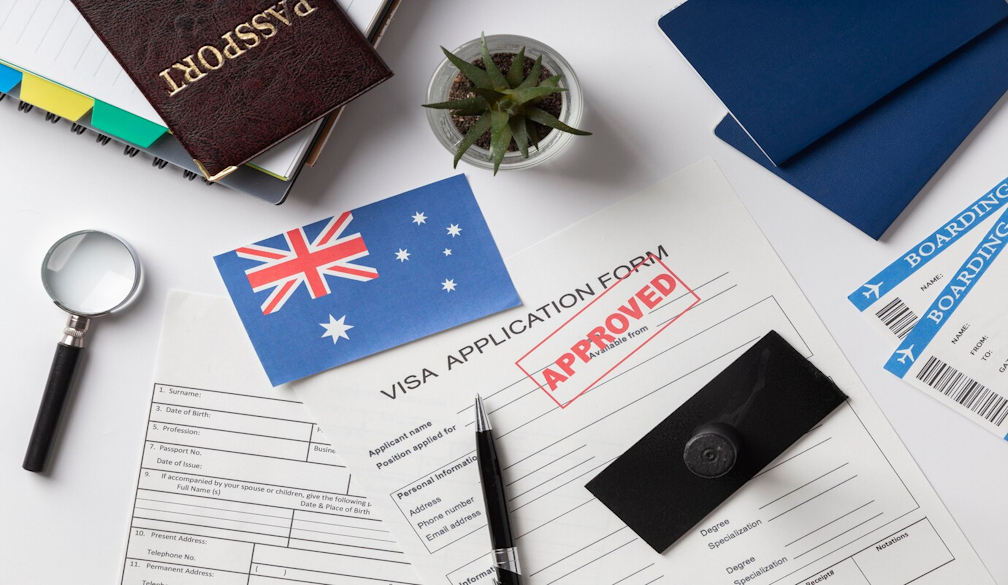Expanding Down Under: Your Guide to Registering a Foreign Company in Australia

Navigating the regulatory landscape can seem daunting. This comprehensive guide will walk you through the essential steps and considerations involved in registering a foreign company in Australia, empowering you to make informed decisions and embark on your Australian business venture with confidence.
Why Australia? Unveiling the Allure
Before diving into the "how-to," let's explore the "why." Australia offers a multitude of advantages for foreign companies. Its strong and resilient economy, characterized by consistent growth and low unemployment, provides a stable and predictable business environment. The country boasts a sophisticated infrastructure, including well-developed transportation, communication, and energy networks. Furthermore, Australia's legal and regulatory framework is transparent and protects intellectual property rights, fostering a secure environment for investment.
Beyond the economic fundamentals, Australia's multicultural society and high quality of life attract a diverse and skilled workforce. The nation's proximity to the burgeoning Asian markets also positions it as a strategic hub for international trade and investment. Whether you're in technology, resources, agriculture, or services, Australia offers a diverse range of opportunities across various sectors.
Navigating the Landscape: Understanding Your Options
When considering establishing a presence in Australia, foreign companies typically have a few key options:
- Registering as a Foreign Company: This involves registering an existing overseas company with the Australian Securities and Investments Commission (ASIC). The foreign company operates in Australia as an extension of its overseas entity.
- Incorporating an Australian Subsidiary Company: This involves creating a new, legally separate company in Australia. The subsidiary is owned and controlled by the foreign parent company but operates independently under Australian law.
- Establishing a Branch Office: Similar to registering as a foreign company, a branch office is an extension of the overseas entity but may have a more limited operational scope.
The most common route for foreign companies seeking a significant and ongoing presence in Australia is either registering as a foreign company or incorporating a subsidiary. The choice between these options often depends on factors such as the desired level of operational independence, tax implications, and liability considerations.
The Step-by-Step Guide to Registering
The process of registering a foreign company in Australia generally involves the following key steps:
- Appointing a Local Agent: Foreign companies are required to appoint a local agent who is an Australian resident or an Australian registered company. This agent acts as the point of contact for ASIC and is responsible for receiving official correspondence.
- Choosing a Company Name: While your existing company name can often be used, it must be available in Australia. You'll need to check the ASIC register to ensure the name is not already taken.
- Lodging an Application with ASIC: You will need to lodge an application for registration with ASIC. This application typically includes details about the foreign company, its directors, and the appointed local agent. Supporting documentation, such as a certified copy of the company's certificate of incorporation and constitution (or equivalent documents), will also be required. These documents may need to be translated into English.
- Obtaining an Australian Business Number (ABN): Once your company is registered with ASIC, you will need to apply for an ABN from the Australian Taxation Office (ATO). The ABN is a unique 11-digit identifier used for tax purposes and when conducting business in Australia.
- Registering for Goods and Services Tax (GST): If your company's annual turnover is likely to exceed the current GST threshold (currently AUD $75,000), you will need to register for GST with the ATO.
- Setting Up a Registered Office: You will need to have a registered office address in Australia where official documents can be served. This can be the address of your local agent or your own business premises.
- Opening an Australian Bank Account: Establishing a local bank account is crucial for managing your Australian business operations.
- Understanding Ongoing Compliance Requirements: Once registered, your foreign company will be subject to ongoing compliance obligations, including lodging annual financial statements with ASIC and complying with Australian tax laws.
Key Considerations and Compliance
Beyond the registration process itself, several crucial considerations need attention. Understanding Australia's tax system, including corporate tax rates and reporting requirements, is paramount. You will also need to familiarize yourself with Australian employment laws, including regulations regarding wages, working conditions, and employee entitlements.
Furthermore, depending on your industry and the nature of your business activities, you may need to obtain specific licenses and permits from relevant Australian government agencies. Ensuring compliance with these regulations is essential for the smooth operation of your business in Australia.
Seeking Professional Guidance
While this guide provides a comprehensive overview, navigating the intricacies of registering a foreign company in Australia can be complex. Engaging with experienced professionals, such as legal advisors, accountants, and business consultants who specialize in assisting foreign companies, can be invaluable. They can provide tailored advice based on your specific circumstances, guide you through the registration process, and ensure you meet all legal and regulatory requirements.
Conclusion
Expanding your business to Australia offers significant potential for growth and success. By understanding the registration process, key considerations, and compliance obligations, you can confidently navigate the landscape and establish a thriving presence in the Australian market. While the journey may seem involved, the rewards of accessing a dynamic and prosperous economy make registering a foreign company in Australia a strategic move for ambitious businesses looking to expand their global horizons. Remember to seek professional guidance to ensure a smooth and successful entry into the Australian business environment.









